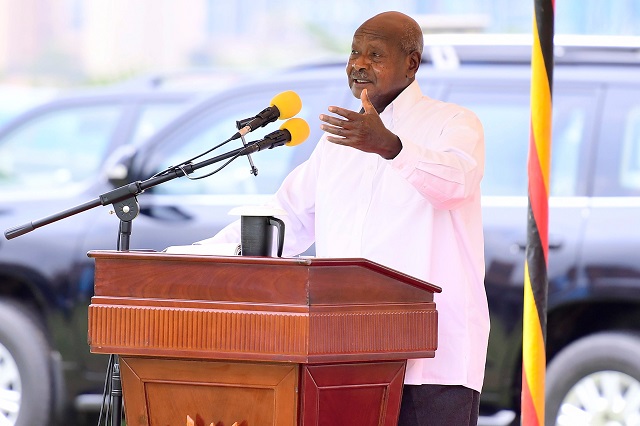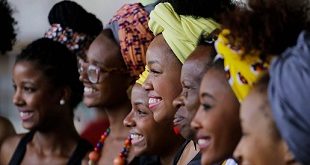
Why they integrate well and have made invaluable contributions to Uganda and countries around the world
COMMENT | CHRISTOPHER BURKE | President Museveni will host the Afro-Indian Investment Summit at the Munyonyo Commonwealth Resort in Kampala on 17-18 November, 2022. The event is part of the centennial celebration of the Indian Association Uganda (IAU) organised in collaboration with the Ministry of Finance, Planning and Economic Development, and Uganda Investment Authority (UIA) to attract investment to Uganda from around the world.
The centennial celebration is being marked at a historic moment of the success of India and the rise of Indians into leadership around the world.
India was a jewel in the British Empire. To this day, the country enjoys a large and growing population with a highly dynamic economy. The liberalisation reforms introduced by Manmohan Singh as Finance Minister of India in the early 1990s brought rapid growth. The Indian economy has since proven remarkably robust, registering an average annual gross domestic product (GDP) growth rate of 5.8 percent since 1951. Earlier this year the World Bank forecast India’s GDP growth through fiscal year 2022-23 at 7.5 per cent against a global GDP growth of 2.9 percent. India’s forecast is a reduction from an earlier forecasted 8 per cent but still indicating a recovery to pre-pandemic GDP levels.
Seventy-five years after securing independence from the British Empire, many Indians regarded Rishi Sunak’s appointment to UK prime minister a Diwali gift. Known as the Festival of Lights, Diwali is among the most important Hindu festivals. This year it was celebrated on 24 October, the very day Sunak was elevated to the top job.
Rishi Sunak’s parents are both ethnic Indians. His father was born in Kenya and his mother in Tanganyika, present day Tanzania. Both moved to the UK in search of a better life where Sunak was born.
Indians currently head some of the biggest and most powerful corporations in the world: Sundarajan Pichai at Alphabet the parent company of Google, Arvind Krishna CEO at IBM, Satya Nadella at Microsoft, Leena Nair at Chanel and Parag Agrawal was CEO of Twitter until only last month. The list is long. In September this year Gautam Adani briefly ranked as the third richest on the Forbes list of world’s most wealthy, marginally ahead of fellow Indian Mukesh Ambani.
There are over one dozen ethnic Indian MPs in the current UK Parliament. Prominent amongst them are Suella Braverman who has returned as the Home Secretary and was also born in the UK with Indian parents. Braverman’s father was born in Kenya and her mother in Mauritius. Her predecessor, Priti Patel who held the post from 2019 to 2022, was born in UK of ethnic Indian parents who had migrated from Uganda in the 1960s. There is a similar collection of ethnic Indians amongst members of the UK opposition Labour Party.
Former UK PM David Cameron predicted almost a decade ago that it was only a matter of time before a UK-Indian would be appointed Prime Minister. On the opposite side of the Atlantic, U.S. Vice President Kamala Harris is a second generation American. Her father was born in Jamaica of African descent and mother was born in India.
Colonial Britain transported Indians around the globe to maximize the extraction of resources from the periphery. Hundreds of thousands of people were moved from India to Africa, the Caribbean, the Pacific and other parts of the Empire to work as laborers, administrators and artisans.
In recent times Britain, the U.S. and other western countries currently representing the centres of power have relied on immigration from India and other countries at the periphery to address the challenges of ageing populations and falling fertility levels.
There are many credible explanations for the rise of Indians and/or individuals of Indian descent. Economic immigrants to these centres of power integrate quickly and the initial generations often excel. They recognise opportunity and seize it through hard work and perseverance. The more successful and most prominent among them disrupt stereotypes, demonstrate capability and provide important role models to Indians everywhere.
With a population of nearly 1.4 billion people, India is incredibly rich in human resources. The diaspora comprises over 35 million people. That is an incredible global network. Ethnic Indians integrate well and have made invaluable contributions to their countries around the world.
The majority of Indians in Uganda focuses on business. Still, Uganda’s first speaker of parliament after independence in 1962 until 1971 was Indian born Narendra M. Patel. Former Member of Parliament for Tororo Municipality Sanjay Tanna and Katangole Singh who is vice chairperson for Greater Kampala on the Central Executive Committee (CEC) of the ruling National Resistance Movement (NRM), are the few Indians who have engaged in politics in Uganda. The judiciary has former High Court Judge Anup Singh Choudry.
There were over 80,000 Indians in Uganda before the 1972 expulsion by then-President Idi Amin. Today the Indian diaspora in Uganda stands at around 35,000. It represents less than one percent of the population, but contributes approximately 65% of the country’s tax revenues.
Other burgeoning centres of power in East Asia, the Middle East and South America are on rise. However, the prominence of India, the scale and success of the country’s economy and the contribution of Indians to global leadership position them at the centre of the stage and deserve to be celebrated.
****
Christopher Burke is the managing director of WMC Africa, a communications and advisory agency in Kampala, Uganda. He has over 25 years’ experience working on communications, development, governance and peace-building in Asia and Africa.
 The Independent Uganda: You get the Truth we Pay the Price
The Independent Uganda: You get the Truth we Pay the Price



